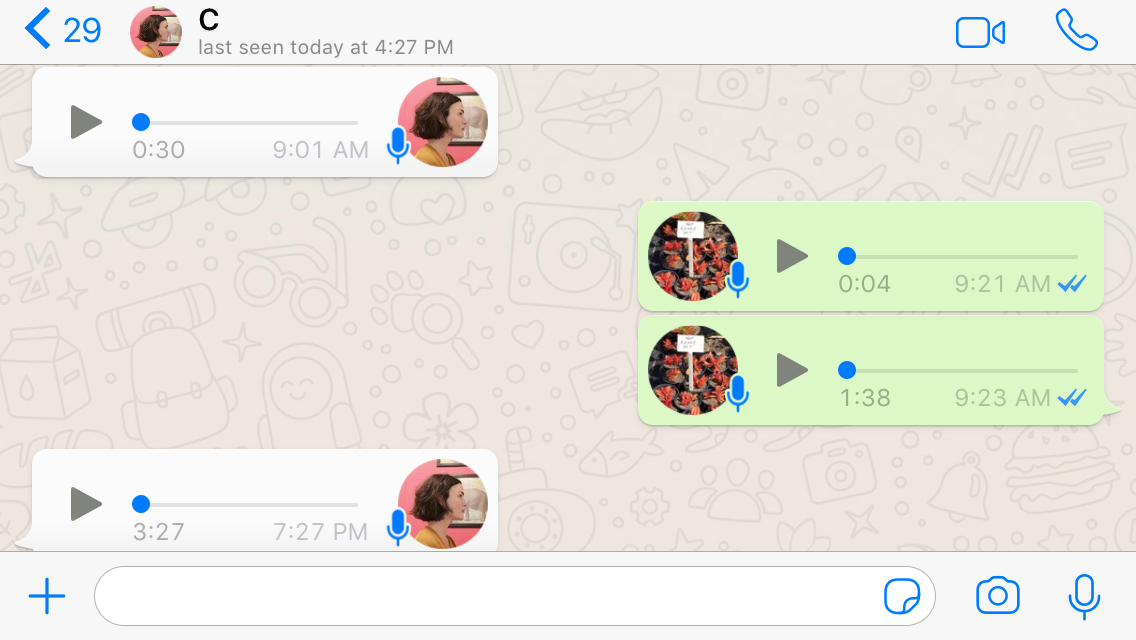Have you considered using voicenotes? You should. Have you not only considered using them, but come to rely on them as much as my best friend C does? She refers to them as VNs. She texts: Sending you a VN, and I think: Ready. Extensive use of voicenotes is one of several things that I have concluded are “very South African,” without ever wondering why I think that (see also: getting vocally distraught about The Land Before Time all these years later; church fetes; “jewel tones;” eating pasta salad at your desk; the pasta salad has so much mayonnaise in it; certain brands of cigarettes; having a hairdresser with a fiancé). Even if this isn’t true and embracing voicenotes will not give you any meaningful insight into the workings of The South African Mind, or into what it is like to be inching along De Waal drive in the most hateful traffic while listening to a six-minute voicenote your friend J sent you about her work enemy, you should try something new. You should consider voicenotes.
Perhaps you have already, and then you will know that what you are saying when you send someone a voicenote is, “we are good friends.” Or, “Welcome to the sound of my voice.” “Secrets.” You could achieve this effect via the traditional phone call, but not everyone enjoys that. I do not. Phone calls can engender a feeling of trapped-ness and also, another constitutive feature of being a South African is being insanely ripped off by all mobile telephone networks, always, and constantly running out of minutes. Phone calls cost a million bucks, and they are not great to begin with.
Sorry to say it, but there is also the issue of reciprocity. It’s a well-known problem: the pleasure of hearing yourself speak is tempered with the knowledge that now it’s the other person’s turn to talk and you must listen and be quiet. Conversation is one of the great pleasures of life, obviously, and we would all die without it, but sometimes a person just needs to say something without interruption. You can do this via text, or I guess an email, but it doesn’t have the same kind of confidential, spontaneous quality. You can craft a text or an email. You can be a real sassy old wordsmith about it. Look at you, clattering away on your keyboard or smiling indulgently at your own reflection in your phone’s screen. Look at me now, writing. These things have their place, but truly, sometimes a person just needs to say something out loud.
Say you’re on the road (this is where I do all my best voicenoting), and you have something you need to get off your chest. You are alone in your car, thinking about how fucked up it is that you have a crush on Kendall Roy from Succession. It is truly wrong, crying out for sanction, and yet. Now say something about it into your phone. Leave a message about it for your best mate, but one that you know she will listen to, unlike a voice mail. The voicenote can be as long or as short as you need it to be. I would never call someone to tell them about the time I saw Richard E. Grant angrily surging up the road in the wind with all kinds of plastic bags and rubbish wrapped around his ankles. What if the other person didn’t feel like talking about Richard E. Grant just then? Would I leave a long voice note about it, however? Yes. The recipient can respond at their leisure. There is your friend, and her sweet little voice, telling you a long, good, unrehearsed story in real time. You should consider sending a VN.






